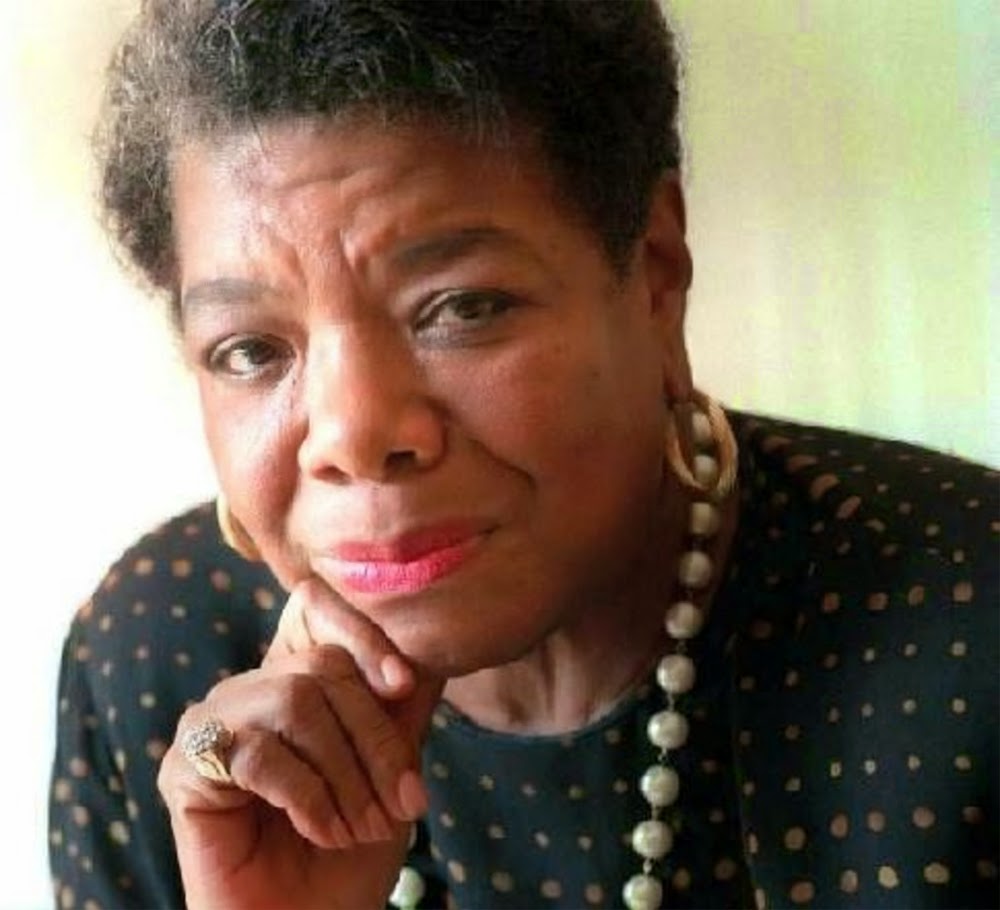The thing I most appreciate
about celebrated writer, Maya Angelou, is her bravery. She spoke and wrote what was on her mind, never
mincing words. In today’s world of empty
praise and false positive affirmation, this poet is a fresh ocean breeze in the
heat of summer. I love her poetry and I teach
it often along with her memoir, I Know Why The Caged Bird Sings. Her work connects
back to the Harlem Renaissance writers and other African-American artists. The title of her memoir comes from a poem by
Paul Lawrence Dunbar (1872-1906).
However, she is not an artist addressing a particular race; she is a
poet for the ages and for all people, a true American treasure.
The Washington Post published a piece yesterday by Valerie Strauss
that made clear Angelou’s ability to speak the truth. She was exuberant about the election of
President Obama, and he in turn awarded her the Presidential Medal of Freedom
in 2011. However, she often spoke out
against the president’s education policy known as Race to the Top. She expressed
“concern about the impact of standardized testing” on children. “Race to the Top feels to be more like a
contest,” she has said, “not what did you learn, but how much can you memorize.” Angelou advocated that kids read widely and
deeply, signaling out authors like Tolstoy and Balzac, “because their books
help young people learn about the complexities of the world.” I think her citing of those particular two
authors is interesting, and not common choices in today’s classrooms. I wonder how many students could make it
through Pere Goirot or War and Peace. They would make for ambitious reading.
The Common Core standards
promote reading informational literature over the authors Angelou cites. Many teachers and critics of the standards
say exactly what Angelou says: reading
imaginative literature opens the reader up to the world, to various characters,
to ideas, morals, and values. Angelou
felt it would be shameful for students to forsake poetry for the study of a
business letter or a legal case summary.
Good writing speaks to readers and fosters a world that, while
containing more than enough tragedy and emptiness, also contains great beauty
and wisdom. In the darkness of
oppression and rape, Maya Angelou lost her voice, as she explains in I Know Why the Caged Bird Sings, but she
recovered and survived, and her story evokes strong emotions for students.
Her words, both in
print and shared in interviews, always contained startling and evocative themes. Listening to her speak meant being prepared
for a surprise, an insight, a way of thinking that remains vital and unique, yet
always clear and piquant. I have typed
out several quotes over the years and pasted them into my journals. Occasionally, one will fall out and remind me
of her power with words:
“If you don't like
something, change it. If you can't change it, change your attitude.”
“We may encounter many
defeats but we must not be defeated.”
“There's a world of
difference between truth and facts. Facts can obscure the truth.”
“What is a fear of
living? It's being preeminently afraid of dying. It is not doing what you came
here to do, out of timidity and spinelessness. The antidote is to take full
responsibility for yourself—for the time you take up and the space you occupy.
If you don't know what you're here to do, then just do some good.”
Maya Angelou died yesterday
at the age of 86. I’ll end with a stanza
from the poem she read at Bill Clinton’s inauguration, January 1993:
“Across the wall of the world,
A River sings a beautiful song,
Come rest here by my side…”


